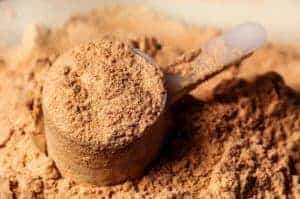Research on Stem Cell Treatment in Horses Shows Promise
- Topics: Article, Recovering from Injury & Surgery
On Behalf of the Equine Research Coordination Group. Authored by David D. Frisbie, DVM, PhD, Dipl. ACVS, associate professor at the Colorado State University College of Veterinary Medicine and Biomedical Sciences Gail Holmes Equine Orthopaedic Research Center.
The use of mesenchymal stem cells has been reported as a treatment for a number of disease processes in both humans and animals. The peer reviewed literature contains a substantial number of scientific studies performed in the laboratory, but there are few clinical reports showing improved outcomes following stem cell treatment, especially in horses.
What Are Stem Cells and How Do We Get Them?
To help better understand the field, we must define what we call a stem cell. In general terms, a stem cell can be defined as a master cell that is capable of reproducing itself and that has the potential to become one of the body’s more specific or differentiated cells, of which there are hundreds. It is important to note the adult stem cells differ from fetal or embryonic stem cells, the latter of which is often discussed in the press from an ethical standpoint. In equine medicine, the safety of fetal stem cells is just now being investigated and will need to undergo a more rigorous governmental approval process prior to commercialization. Adult stem cells can be isolated from many of the body’s various tissues, but most research has focused on bone derived cells, which will be the main focus of this article. Fat is also used as an origin of stem cells and was the source used by the first commercial veterinary laboratory. However, two published equine studies found fat derived cells to be inferior when looking at differentiation into musculoskeletal tissue such as cartilage and tendon (Vidal et al. 2008; Kisiday et al. 2008). Further, researchers looking into equine stem cells are focusing on bone derived cells suggesting this cell source will be used the future
Create a free account with TheHorse.com to view this content.
TheHorse.com is home to thousands of free articles about horse health care. In order to access some of our exclusive free content, you must be signed into TheHorse.com.
Start your free account today!
Already have an account?
and continue reading.
Related Articles
Stay on top of the most recent Horse Health news with


















